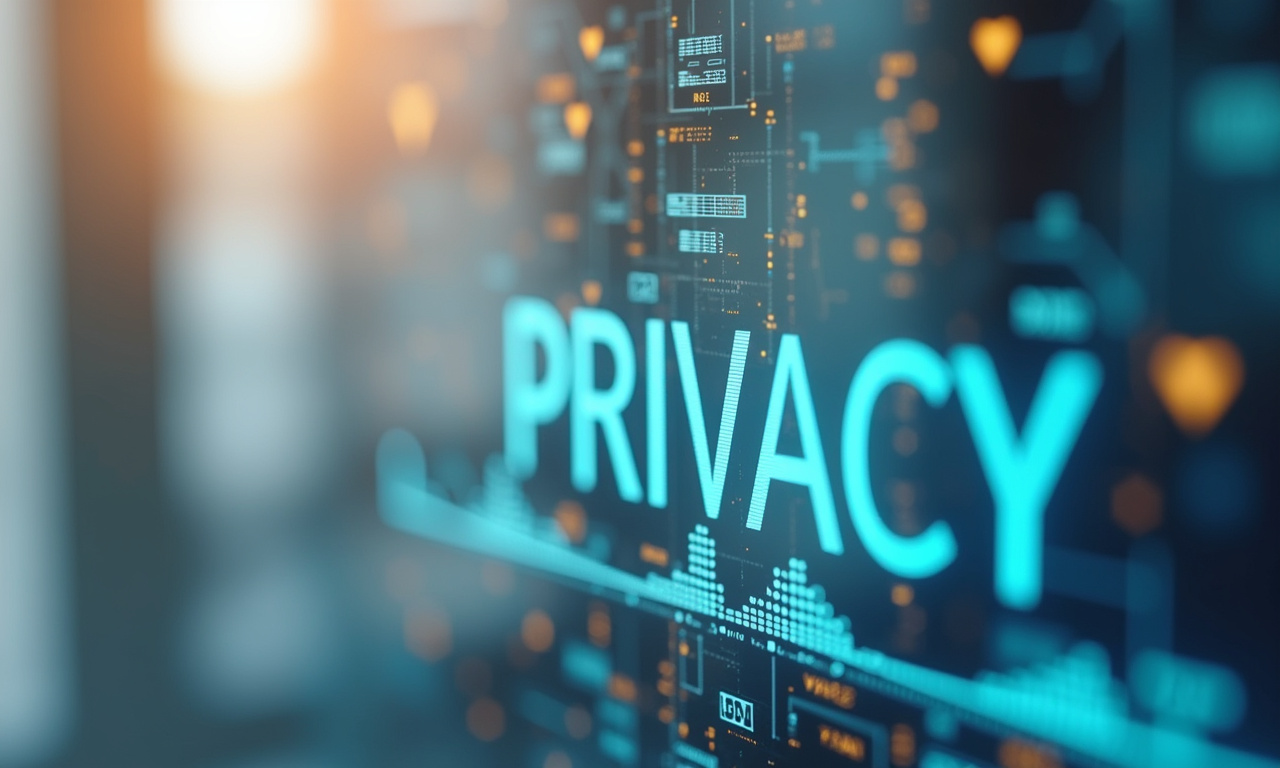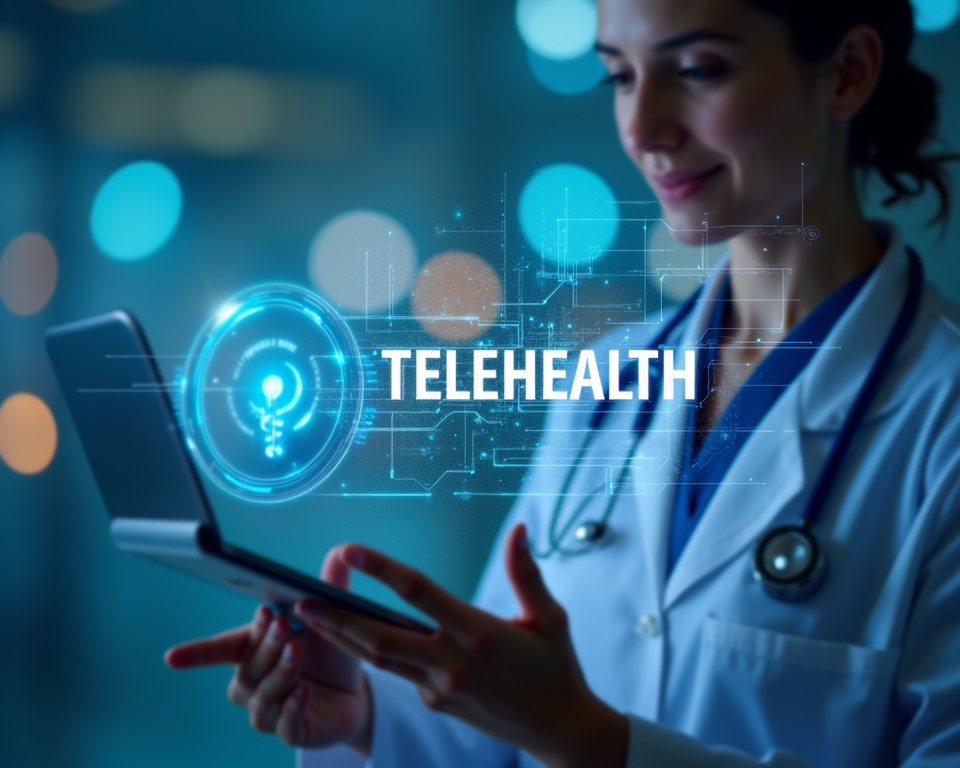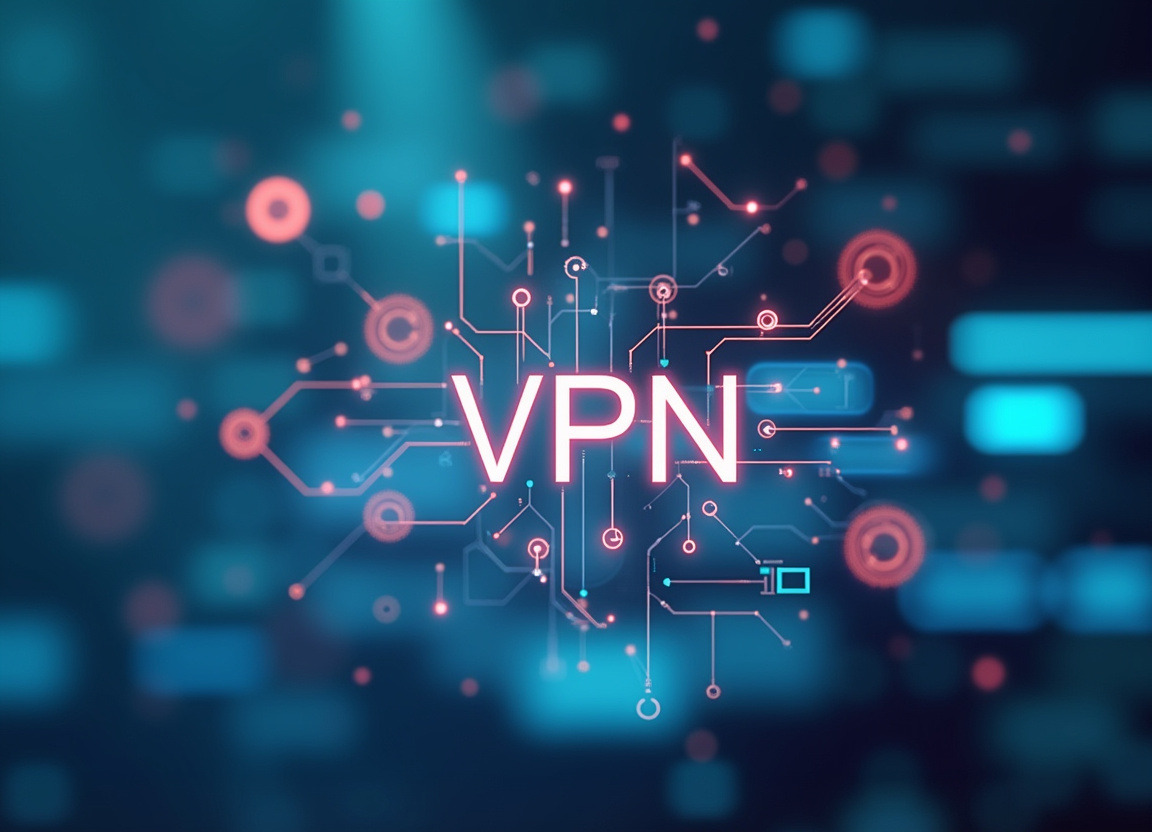VPNs for Elderly Care Services: Protecting Patient Information

Table of Contents
- The Growing Need for Data Security in Elderly Care
- Understanding VPNs: How They Safeguard Patient Data
- Implementing VPNs: Best Practices for Elderly Care Facilities
- VPNs for Services: Enhancing Security for Subscription-Based Offerings
- Future Trends: The Evolving Role of VPNs in Protecting Senior Care Data
The Growing Need for Data Security in Elderly Care
In an era defined by rapid technological advancements and interconnected digital landscapes, the sanctity of sensitive information has become a paramount concern, none more so than within the realm of elderly care services. As the global population ages, reliance on digital tools for managing care, tracking health, and ensuring well-being has surged. This digital transformation, while offering unprecedented benefits, simultaneously introduces significant vulnerabilities to patient data security and confidentiality.
In this context, the implementation of Virtual Private Networks (VPNs) emerges as a critical line of defense, providing a secure, encrypted conduit for transmitting sensitive information and safeguarding the privacy of senior citizens entrusted to various care organizations. This article explicates the compelling rationale for VPNs within elderly care, exploring the multifaceted benefits they offer in mitigating data breaches, ensuring regulatory compliance, and fostering trust among patients, families, and caregivers. The imperative for robust data protection strategies within elderly care is underscored by the uniquely sensitive nature of the information involved.
Medical records detailing diagnoses, treatment plans, and medication regimens, alongside personal identifying information, financial data, and even records of daily routines, are routinely stored and transmitted electronically. This wealth of sensitive data makes elderly care organizations prime targets for cybercriminals seeking to exploit vulnerabilities for financial gain or malicious purposes. Without adequate security protocols, this information is susceptible to compromise, potentially leading to identity theft, financial exploitation, emotional distress, and a profound breach of confidentiality – outcomes that can inflict significant harm on vulnerable individuals who depend on elderly care services.
Elderly care facilities, home healthcare providers, assisted living communities, and all organizations operating within this critical sector must recognize the fundamental importance of implementing comprehensive and proactive security measures to protect patient data. This responsibility transcends basic password protection and antivirus software; it demands a multifaceted strategy encompassing secure network infrastructure, robust access controls, diligent data encryption, and comprehensive staff training. The adoption of VPNs represents a cornerstone of such a strategy, providing a secure communications channel that effectively shields sensitive information from unauthorized access, thereby reinforcing the confidentiality and integrity of patient data.
At its core, a VPN functions as a virtual secure tunnel, encrypting data as it traverses the internet, rendering it unreadable to any unauthorized party who might attempt to intercept it. This encryption process is paramount, as it ensures that even if data falls into the wrong hands, it cannot be deciphered or used for malicious purposes. This is particularly crucial when transmitting medical records, financial transactions, or personal information over public Wi-Fi networks, which are inherently less secure and susceptible to eavesdropping attacks.
By establishing an encrypted connection, VPNs effectively cloak the data, ensuring its confidentiality even in potentially insecure environments. Implementing VPNs within elderly care settings not only protects patient data from external threats but also strengthens internal security measures by controlling access to sensitive information. By requiring employees to connect to the organization's network through a VPN, a rigorous authentication process can be enforced, verifying the employee's identity and granting access only to the resources necessary for their specific role.
This granular level of access control minimizes the risk of unauthorized data access by employees who do not have a legitimate need to view it, thereby mitigating the potential for internal data breaches stemming from negligence or malicious intent. Furthermore, the implementation of VPNs significantly contributes to an organization's ability to comply with stringent regulations and industry standards pertaining to patient data protection and privacy. Regulations such as the Health Insurance Portability and Accountability Act (HIPAA) in the United States mandate that healthcare providers and associated organizations implement robust security measures to safeguard protected health information (PHI).
The strategic use of VPNs can actively support meeting these stringent compliance mandates by encrypting PHI during transmission and ensuring that only authorized individuals with appropriate credentials can access the sensitive data. In essence, VPNs play a pivotal role in establishing a secure and compliant environment that prioritizes the privacy and protection of patient information within the elderly care landscape.
Understanding VPNs: How They Safeguard Patient Data
Beyond the overarching requirement for data protection within elderly care, specific applications and scenarios underscore the critical importance of VPNs. Telemedicine, a rapidly expanding field enabling remote consultations between seniors and healthcare professionals, presents a prime example. These virtual interactions often involve the exchange of highly sensitive medical information, including diagnoses, treatment plans, medication details, and personal health histories.
Without a secure conduit, this information is vulnerable to interception, jeopardizing patient privacy and potentially leading to inaccurate or inappropriate medical care based on compromised data. A VPN effectively mitigates this risk by encrypting the communication channel between the patient and the healthcare provider, ensuring that the information remains confidential and secure throughout the telemedicine session. This robust security fosters trust and encourages wider adoption of telemedicine services, enabling seniors to access convenient and high-quality care from the comfort of their own homes.
Similarly, remote monitoring of elderly patients is becoming increasingly prevalent, with wearable devices and home-based sensors tracking vital signs (heart rate, blood pressure), medication adherence, activity levels, and sleep patterns. This passively collected data provides invaluable insights into a patient's health status, enabling timely interventions and personalized care plans. However, the continuous wireless transmission of this sensitive data creates a significant potential vulnerability.
Unencrypted wireless signals can be intercepted by malicious actors, allowing them to access personal health information and potentially use it for nefarious purposes. A VPN can secure this data transmission, establishing an encrypted connection between the monitoring devices and the healthcare provider's systems, ensuring that only authorized personnel can access the information and preventing it from falling into the wrong hands. This level of protection fosters confidence among patients and their families, encouraging greater participation in remote monitoring programs and ultimately improving health outcomes.
In addition to telemedicine and remote monitoring, elderly care facilities increasingly rely on Electronic Health Records (EHRs) to manage patient information. EHRs contain a comprehensive collection of sensitive data, including medical history, diagnoses, medications, allergies, immunization records, lab results, and imaging studies. Protecting this data from unauthorized access is of paramount importance, as a breach could have devastating consequences for patients, potentially leading to identity theft, insurance fraud, and emotional trauma.
VPNs play a central role in securing EHR access by encrypting the connection between users (doctors, nurses, administrators) and the EHR system. This robust encryption ensures that only authorized individuals with the proper credentials can access the information and that any data transmitted between the user's device and the EHR system remains confidential and protected from interception. Moreover, the burgeoning adoption of cloud-based services in elderly care introduces additional security complexities.
Cloud storage and applications offer undeniably attractive benefits, including scalability, cost-effectiveness, and enhanced collaboration. However, they also expose the organization to new potential vulnerabilities, as data stored in the cloud is inherently susceptible to unauthorized access, data breaches orchestrated by sophisticated hackers, and data loss events due to system failures or human error. By implementing VPNs to access cloud-based services, elderly care organizations can encrypt the data transmission between their users and the cloud provider's servers.
This encryption acts as a crucial protective layer, ensuring that data remains protected from unauthorized access during transit and mitigating the risk of data breaches. Furthermore, VPNs can mask the organization's IP address, making it more difficult for cybercriminals to target their systems directly. The effective utilization of VPNs in conjunction with other security measures, such as strong password policies, multi-factor authentication, and regular security audits, forms a comprehensive strategy for protecting patient data in the ever-evolving cloud environment.
Implementing VPNs: Best Practices for Elderly Care Facilities
Choosing the appropriate type of elderly care VPN solution is a critical decision that demands careful evaluation of several factors. It's crucial to recognize that not all VPNs are created equal; selecting an inadequate VPN could inadvertently leave sensitive patient data inadequately protected and vulnerable to cyberattacks. A thorough understanding of different VPN types and their specific strengths and weaknesses is essential for making an informed decision that aligns with the unique security needs of an elderly care organization.
One common type of VPN is a *site-to-site VPN*, which establishes a secure, encrypted connection between two or more geographically separated networks. This approach is typically used to connect different branches of an elderly care organization, such as a main administrative office and a satellite clinic, or to securely link a facility to a remote data center. A site-to-site VPN ensures that all data transmitted between these locations is encrypted and protected from eavesdropping, providing a secure tunnel for transmitting sensitive patient information, financial records, and other confidential data.
This type of VPN is particularly well-suited for organizations with multiple locations that need to share resources and data securely. Another widely used type of VPN is a *remote access VPN*, which enables individual users to securely connect to a private network from remote locations. This is especially important for elderly care providers who work remotely, such as home healthcare nurses, visiting physicians, or telehealth consultants.
A remote access VPN allows these users to securely access patient records, communicate with colleagues, and perform other essential tasks without compromising data security. When a remote user connects to the network through a VPN, all data transmitted between their device and the organization's network is encrypted, protecting it from interception by unauthorized parties. This mitigates the risk of data breaches resulting from unsecured Wi-Fi networks or compromised devices.
Beyond the basic types, the choice of VPN protocol also greatly influences the security and performance of the connection. Common protocols include *OpenVPN*, known for its robust security and open-source nature, making it highly customizable and auditable; *IPsec*, often used for site-to-site VPNs due to its strong security features and integration with network devices; and *WireGuard*, a newer protocol gaining popularity for its speed and efficiency. Each protocol offers different trade-offs between security, performance, and compatibility, so it’s important to select one that meets both the security requirements and the performance needs of the organization.
Furthermore, consider the deployment model: a *hardware VPN* involves dedicated physical appliances, offering high performance and control but requiring significant upfront investment and ongoing maintenance; a *software VPN* runs on existing servers, providing flexibility and cost-effectiveness but potentially impacting server performance; and a *cloud-based VPN* provides scalability and ease of management, but requires careful evaluation of the provider's security practices. Each deployment model has its advantages and disadvantages, and the best choice will depend on the organization's size, budget, and technical expertise. Additional factors to weigh during the VPN selection process include the vendor's reputation, security certifications, logging policies, and data jurisdiction.
Choose a reputable vendor with a strong track record of security and reliable customer support. Ensure that the VPN service has undergone independent security audits and holds relevant certifications, such as HIPAA compliance verification. Understand the vendor's logging policies – a "no-logs" policy ensures that the VPN provider does not retain any records of user activity.
Finally, carefully review the vendor's data jurisdiction to ensure that your organization's data is protected by appropriate privacy laws.
VPNs for Services: Enhancing Security for Subscription-Based Offerings
The successful implementation of an elderly care VPN strategy hinges not only on selecting the right VPN technology but also on meticulously planning and executing its integration into the existing IT infrastructure and workflows. A poorly implemented VPN, even with the best underlying technology, can create vulnerabilities and hinder productivity, ultimately undermining its intended security benefits. Therefore, a phased approach encompassing thorough planning, configuration, testing, and ongoing maintenance is crucial for realizing the full potential of a VPN deployment.
The initial phase should involve a comprehensive security assessment to identify potential vulnerabilities and assess the organization's specific needs for *medical data protection*. This assessment should consider the types of data being transmitted, the locations where data is accessed, the devices used to access data, and the regulatory requirements that apply to the organization. The findings of the security assessment will inform the selection of the appropriate VPN technology and the development of a detailed implementation plan.
The implementation plan should outline the scope of the VPN deployment, the timeline for implementation, the resources required, and the roles and responsibilities of different team members. It should also include a detailed configuration plan that specifies the settings for the VPN server, client devices, and network infrastructure. This plan should prioritize strong encryption protocols, secure authentication methods (such as multi-factor authentication), and robust access controls.
Thorough testing is essential before deploying the VPN in a production environment. This testing should include functional testing to ensure that the VPN is working as expected, performance testing to assess the VPN's impact on network speed and latency, and security testing to identify any vulnerabilities that could be exploited by attackers. Security testing should involve penetration testing and vulnerability scanning to simulate real-world attacks and identify weaknesses in the VPN configuration.
Once testing is complete, the VPN can be rolled out to users in a phased approach. This allows the IT team to monitor performance and address any issues that arise before deploying the VPN to the entire organization. User training is a critical component of the VPN implementation process.
Users need to be educated about the importance of using the VPN, how to connect to the VPN, and what to do if they experience problems. Training should also cover best practices for data *confidentiality* and security, such as avoiding phishing attacks and using strong passwords. Ongoing maintenance is essential to ensure that the *elderly care VPN* remains secure and performs optimally.
This includes regularly updating the VPN software, monitoring security logs for suspicious activity, and conducting periodic security audits. It also involves proactively addressing any security vulnerabilities that are discovered and adapting the VPN configuration to meet evolving security threats. Furthermore, establish clear policies and procedures governing the use of the VPN.
These policies should outline acceptable use guidelines, data handling procedures, and incident response protocols. Regularly review and update these policies to reflect the evolving threat landscape and regulatory requirements. Also, consider integrating the VPN with other security tools, such as intrusion detection systems (IDS) and security information and event management (SIEM) systems, to enhance threat detection and response capabilities.
This integration allows security teams to correlate VPN logs with other security data to identify and respond to potential security incidents more effectively.
Future Trends: The Evolving Role of VPNs in Protecting Senior Care Data
In conclusion, the implementation of VPNs within elderly care services represents a crucial investment in protecting sensitive patient information, upholding ethical standards, and ensuring regulatory compliance. As elderly care continues to embrace digital technologies for enhanced efficiency and patient care, the inherent vulnerabilities associated with data transmission and storage must be addressed proactively. VPNs provide a robust security layer that encrypts data, secures remote access, and controls internal access to sensitive information, mitigating the risk of data breaches and upholding patient *confidentiality*.
By implementing a well-planned and carefully configured VPN solution, elderly care organizations can demonstrate their commitment to safeguarding patient data and building trust among patients, families, and caregivers. This trust is essential for fostering a positive care environment and ensuring that seniors receive the quality care they deserve, without having to worry about the security of their personal information. Looking forward, the role of VPNs in elderly care is only likely to increase as telehealth, remote monitoring, and cloud-based services become more prevalent.
These technologies offer tremendous potential for improving the quality of care and extending access to healthcare services, but they also create new and evolving security challenges. VPNs will be essential for securing these technologies and ensuring that patient data remains protected in the face of increasingly sophisticated cyber threats. Furthermore, the integration of VPNs with other security technologies, such as artificial intelligence (AI) and machine learning (ML), holds great promise for enhancing threat detection and response capabilities.
AI and ML algorithms can analyze VPN logs and other security data to identify anomalies and predict potential security breaches before they occur. This proactive approach to security will be essential for staying ahead of evolving cyber threats and protecting patient data in the long term. As the regulatory landscape surrounding data privacy continues to evolve, elderly care organizations must stay informed about the latest requirements and adapt their security practices accordingly.
VPNs can play a key role in meeting these regulatory requirements, but it is important to choose a VPN solution that complies with all applicable laws and regulations, such as HIPAA, GDPR, and CCPA. Ultimately, the decision to implement a *VPN for healthcare* in elderly care should be viewed as a strategic imperative, not merely a technical consideration. It requires a top-down commitment from senior leadership to prioritize data security and allocate the necessary resources for implementing and maintaining a robust VPN solution.
This commitment should be reflected in the organization's policies, procedures, and training programs. By embracing a culture of security and prioritizing the protection of patient data, elderly care organizations can ensure that they are providing the best possible care to their patients, while also protecting their privacy and dignity. Moving forward, continuous education and awareness initiatives for staff members regarding data security best practices are paramount.
Regular training sessions can equip employees with the knowledge and skills necessary to identify and avoid phishing attempts, use strong passwords, and handle sensitive information securely. Staying ahead of emerging threats requires constant vigilance and adaptation. By taking a proactive and strategic approach to VPN implementation and data *patient data security*, elderly care organizations can safeguard their patients' information, build trust, and ensure the delivery of high-quality, secure care in the digital age.
The combination of a strong VPN and continuous security awareness significantly minimizes risks related to information breaches and sensitive data access. As technology continues to evolve, the commitment for protecting patient data and embracing enhanced technology to do so is increasingly important to ensure positive experiences and patient-caregiver relationships.
Stay Updated
Get the latest VPN news, tips, and exclusive deals to your inbox.




